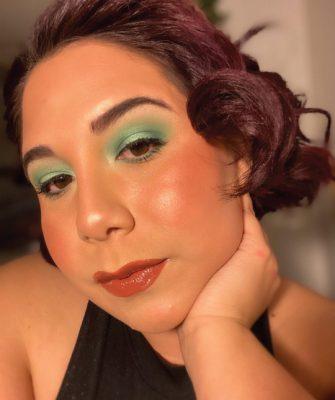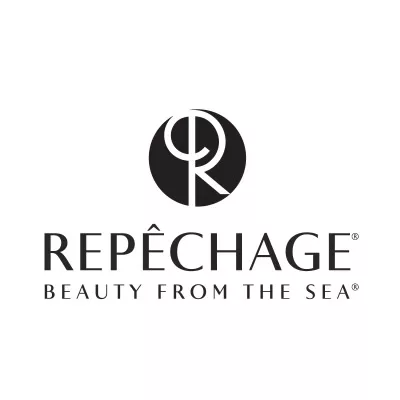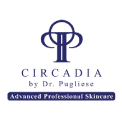Get rid of hyperpigmentation safely at Bellus Academy Medi-Spa
Guest Blogger Olga Filatova, Spa Director
What is Post Inflammatory Hyperpigmentation?
Post inflammatory hyperpigmentation, or PIH, is the medical term given to discoloration of the skin that follows an inflammatory wound. It is the skin’s natural response to inflammation. PIH presents itself as a flat area of discoloration on the skin ranging from pink to red, purple, brown or black, depending on your skin tone and depth of the discoloration.
PIH develops when a wound, rash, pimple, or other stimuli causes skin inflammation, which triggers the skin to produce too much melanin. Melanin is the protein in the skin that gives the skin its color. The excess melanin darkens and discolors the wounded area. This discoloration remains even after the wound or rash has healed. PIH is very common among acne sufferers. It can occur in all skin types, although it is more common in darker skin tones. It affects both men and women equally. Luckily, PIH is not a true scar.
PIH and Acne
A post inflammatory hyperpigmentation macule often is the remnant of an inflamed acne lesion. PIH macules can follow relatively minor pimples and papules, in addition to more serious lesions. However, the more inflamed a breakout, the larger and darker the PIH macule tends to be.
You can identify post inflammatory hyperpigmentation by carefully examining the skin. PIH macules can be a range of colors, however, the skin will not be pitted or depressed. It may look like a discolored freckle on the skin, or it may present as a larger, dark discoloration of the skin. PIH macules may look shiny, or like “new skin.”
Treating PIH
Most acne sufferers are relieved to learn that post inflammatory hyperpigmentation is not scarring. PIH will fade away over time, even without treatment. It can take three to 24 months for PIH to fully fade, although in some cases it may take longer. The length of time it takes for PIH to fade depends on how dark the PIH macule is compared to your skin tone. The bigger the contrast between the macule and your natural skin tone, the longer it will take to fade.
There are treatment options available to help fade post inflammatory hyperpigmentation more quickly. However, your acne should be under control before beginning any treatment for PIH. Otherwise, each new pimple could cause another PIH macule, reducing the effectiveness of treatment.
Hydroquinone
Hydroquinone is a widely used treatment for post inflammatory hyperpigmentation. Hydroquinone works by blocking the enzyme responsible for melanin production, thereby lightening the skin.
Hydroquinone creams often contain additional lightening ingredients, such as kojic acid, glycolic acid, tretinoin and other retinoids, or vitamin C. These combination creams can give you better results than using hydroquinone alone.
Topical Retinoids
Retinoids help clear acne by speeding up cell turnover rates. It is this rapid exfoliation that can also help clear PIH. The fact that they lessen post inflammatory hyperpigmentation as they treat acne breakouts is an added benefit for many people.
Obvious results may not be apparent for several weeks to several months after beginning treatment. Topical retinoids may cause excessive dryness, redness, and/or irritation, which may in turn increase hyperpigmentation
Glycolic Acid
Glycolic acid is an alpha hydroxy acid found in many skin care products. It effectively exfoliates the skin, helping to lighten post inflammatory hyperpigmentation. Available in cleansers, creams, and gels, glycolic acid not only helps improve post inflammatory hyperpigmentation, but also leaves your skin smooth and soft.
Azelaic Acid
Azelaic acid is used to treat acne as well as PIH. Available by prescription only, azelaic acid works by decreasing inflammation and speeding up cell turnover rates. Some studies have shown azelaic acid to be as effective as hydroquinone at treating hyperpigmentation. It is a good alternative for those who may be unable to use hydroquinone.
Azelaic acid is available in cream and gel form, and is sometimes used in conjunction with glycolic acid or tretinoin.
Procedural Treatments
More persistent cases of post inflammatory hyperpigmentation can be treated professionally at Bellus Medi-Spa. Procedural treatments include various chemical peels and microdermabrasion . A series of treatments is needed to adequately fade PIH. Your aesthetician can help determine which of these treatments, if any, would be right for you.
Get rid of hyperpigmentation safely at Bellus Medi-Spa
What is Post Inflammatory Hyperpigmentation?
Post inflammatory hyperpigmentation, or PIH, is the medical term given to discoloration of the skin that follows an inflammatory wound. It is the skin’s natural response to inflammation. PIH presents itself as a flat area of discoloration on the skin ranging from pink to red, purple, brown or black, depending on your skin tone and depth of the discoloration.
PIH develops when a wound, rash, pimple, or other stimuli causes skin inflammation, which triggers the skin to produce too much melanin. Melanin is the protein in the skin that gives the skin its color. The excess melanin darkens and discolors the wounded area. This discoloration remains even after the wound or rash has healed. PIH is very common among acne sufferers. It can occur in all skin types, although it is more common in darker skin tones. It affects both men and women equally. Luckily, PIH is not a true scar.
PIH and Acne
A post inflammatory hyperpigmentation macule often is the remnant of an inflamed acne lesion. PIH macules can follow relatively minor pimples and papules, in addition to more serious lesions. However, the more inflamed a breakout, the larger and darker the PIH macule tends to be.
You can identify post inflammatory hyperpigmentation by carefully examining the skin. PIH macules can be a range of colors, however, the skin will not be pitted or depressed. It may look like a discolored freckle on the skin, or it may present as a larger, dark discoloration of the skin. PIH macules may look shiny, or like “new skin.”
Treating PIH
Most acne sufferers are relieved to learn that post inflammatory hyperpigmentation is not scarring. PIH will fade away over time, even without treatment. It can take three to 24 months for PIH to fully fade, although in some cases it may take longer. The length of time it takes for PIH to fade depends on how dark the PIH macule is compared to your skin tone. The bigger the contrast between the macule and your natural skin tone, the longer it will take to fade.
There are treatment options available to help fade post inflammatory hyperpigmentation more quickly. However, your acne should be under control before beginning any treatment for PIH. Otherwise, each new pimple could cause another PIH macule, reducing the effectiveness of treatment.
Hydroquinone
Hydroquinone is a widely used treatment for post inflammatory hyperpigmentation. Hydroquinone works by blocking the enzyme responsible for melanin production, thereby lightening the skin.
Hydroquinone creams often contain additional lightening ingredients, such as kojic acid, glycolic acid, tretinoin and other retinoids, or vitamin C. These combination creams can give you better results than using hydroquinone alone.
Topical Retinoids
Retinoids help clear acne by speeding up cell turnover rates. It is this rapid exfoliation that can also help clear PIH. The fact that they lessen post inflammatory hyperpigmentation as they treat acne breakouts is an added benefit for many people.
Obvious results may not be apparent for several weeks to several months after beginning treatment. Topical retinoids may cause excessive dryness, redness, and/or irritation, which may in turn increase hyperpigmentation
Glycolic Acid
Glycolic acid is an alpha hydroxy acid found in many skin care products. It effectively exfoliates the skin, helping to lighten post inflammatory hyperpigmentation. Available in cleansers, creams, and gels, glycolic acid not only helps improve post inflammatory hyperpigmentation, but also leaves your skin smooth and soft.
Azelaic Acid
Azelaic acid is used to treat acne as well as PIH. Available by prescription only, azelaic acid works by decreasing inflammation and speeding up cell turnover rates. Some studies have shown azelaic acid to be as effective as hydroquinone at treating hyperpigmentation. It is a good alternative for those who may be unable to use hydroquinone.
Azelaic acid is available in cream and gel form, and is sometimes used in conjunction with glycolic acid or tretinoin.
Procedural Treatments
More persistent cases of post inflammatory hyperpigmentation can be treated professionally at Bellus Medi-Spa. Procedural treatments include various chemical peels and microdermabrasion . A series of treatments is needed to adequately fade PIH. Your aesthetician can help determine which of these treatments, if any, would be right for you.

















